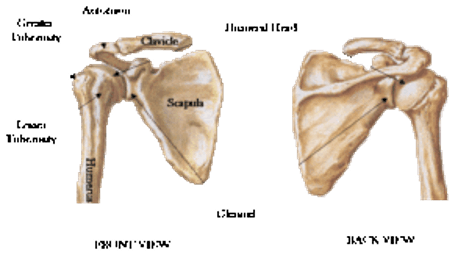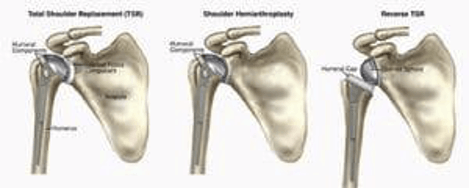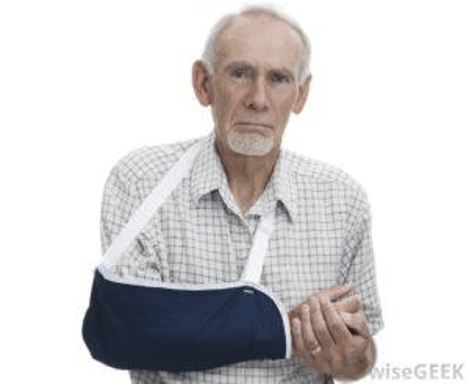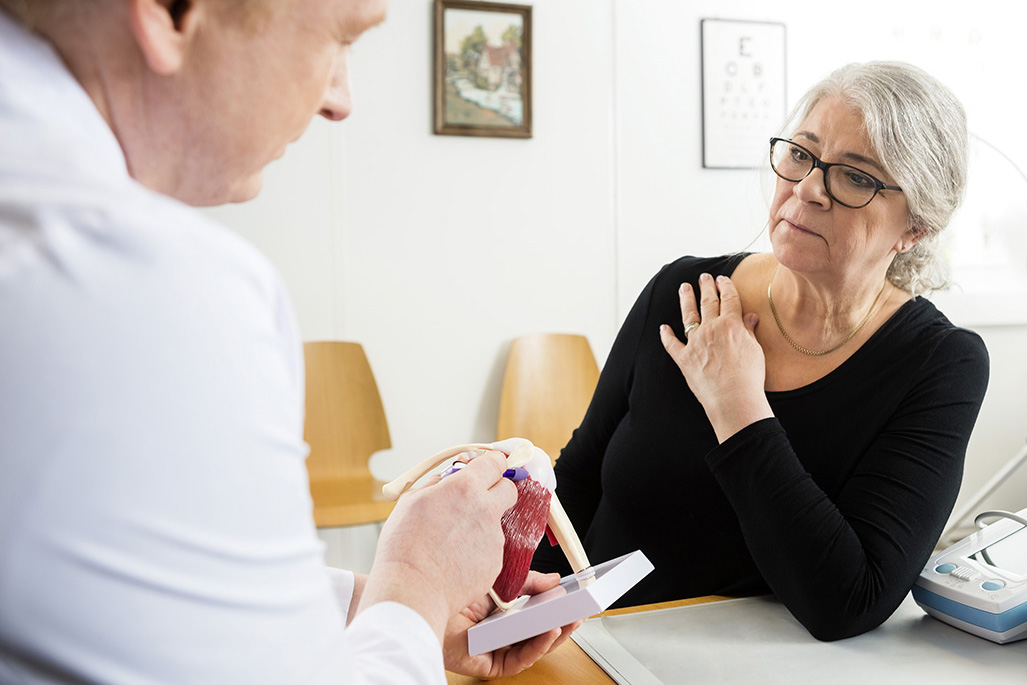
You may not think a lot about your shoulders–until something goes wrong with them. Pain in your shoulders can be severe, and it can limit your range of movement for everyday activities. Perhaps your doctor has mentioned a Total Shoulder Replacement. Many people find relief after this procedure and subsequent physical therapy. Here’s what you need to know about Total Shoulder Replacements.

What is a Total Shoulder Replacement, and Who Needs It?
A Total Shoulder Replacement (TSR) is a surgical procedure that replaces the joints between your shoulder and arm bones with artificial parts. It is also called Total Shoulder Arthroplasty.
There are several reasons you might need a TSR, the main one of which is severe arthritis. In simple terms, arthritis is joint inflammation. There are several types of arthritis, of which osteoarthritis, or degenerative joint disease, is the most common. This condition is characterized by the breaking down of cartilage between joints. When cartilage breaks down, movement can become very painful. This type of arthritis is most common in people over age 65.
Some patients who have experienced a traumatic injury to their shoulder joint may also benefit from a TSR. This type of injury may include a severe fracture to the upper arm bone. Doctors normally only prescribe a Total Shoulder Replacement when the patient’s quality of life is seriously impacted by their shoulder pain, and when other treatment methods have failed.
How Common is a Total Shoulder Replacement?
According to the American Academy of Orthopaedic Surgeons, the number of Total Shoulder Replacement procedures done in the United States has increased dramatically in recent years. In the year 2000, around 18,000 TSR procedures were performed nationwide, while over 45,000 procedures were done in 2013. The increase in TSR is likely caused by a large aging population of Baby Boomers who are experiencing severe arthritis pain in their shoulder joints.

Total Shoulder Replacement and Reverse Total Shoulder Replacement: What’s the Difference?
Your shoulder joint is a “ball and socket joint”. The ball part of the joint is located at the top of your arm bone, while the concave socket part is located on the shoulder bone. A Total Shoulder Replacement keeps the location of these joints the same, simply replacing the joint with metal or plastic pieces. In a Reverse Total Shoulder Replacement, the location of the artificial ball and socket parts of the joint are reversed, meaning that the ball is now part of the shoulder, while the socket becomes part of the arm. A Reverse Total Shoulder Replacement is often recommended for patients with torn rotator cuffs, or those with severe injuries to the “ball part” of their arm bones.
What Happens During the Surgery?
Recovering from a Total Shoulder Replacement will take some time. You will need a friend or family member to help care for you after you leave the hospital since patients are advised not to lift anything heavier than a pound for six weeks after the surgery. You will also not be able to drive a car for several weeks. With your doctor’s consent, most normal activities can be resumed after six weeks.

Rehab for TSR
In order to make sure your Total Shoulder Replacement surgery is a success, it is important to follow your doctor’s recommendations regarding physical therapy and rehabilitation. Your rehab is likely to start before you leave the hospital. There, a physical therapist may have some exercises for you to do at home to ensure your range of movement. It’s important to keep up your physical therapy once you leave the hospital. You will likely need to start an outpatient physical therapy program seven to ten days after your surgery. Most patients need to keep up a physical therapy program for several weeks.

Hess Physical Therapy works with your surgeon to create a custom physical therapy plan for your recovery. You can expect a full recovery from TSR in six to ten months. With the help of physical therapy, you can recover from your surgery and regain pain-free movement in your shoulder. This can help you live a full, normal life again.
If you have questions about recovering from a Total Shoulder Replacement or would like a Free Consult, call Hess Physical Therapy at any of our 3 convenient locations.
Our locations:
- Kennedy: (412)-771-1055
- Crafton: (412)-458-3445
- Allison Park: (412)-487-2787
- Bethel Park: (412) 835-2626
- Atlasburg: (724) 947-9999
Website: www.hesspt.com
Disclaimer: this information is "not medical advice" and is used at the site visitor's own risk.

